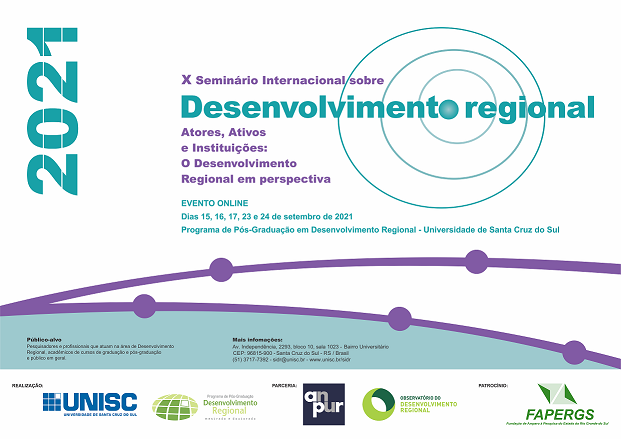REGIONAL DEVELOPMENT, SUSTAINABILITY AND TOURISM: CONTRIBUTIONS FROM SISTUR'S METHODOLOGICAL PERSPECTIVE
Resumo
From the 1960s onwards, several proposals based on the General Systems Theory (TGS) started to be applied in the scope of Tourism. In Brazil, the most prominent name in TGS studies, in the scope of Tourism, was Beni, through the model that he called the Tourism System (SISTUR) launched in the late 1980s. The systemic perception was relevant to tourism research, becoming the main methodological tool for tourism studies adopted by the Brazilian academy. Combined with strategic planning, Sistur becomes a relevant tool for the development of sustainable tourism, a social interest in accession. The Sistur guides researchers to investigate Tourism as a system to the extent that it operates in an environment (or environment); it has internal elements that guarantee systemic perception; has specific attributes; is influenced by input; generates output and promotes feedback guaranteed to your development. This article describes the Sistur, working on the Tourism environment, its systems, indicators and using examples that facilitate the absorption of its proposal.

